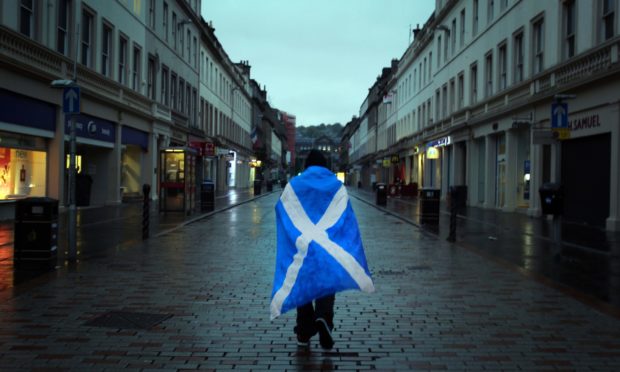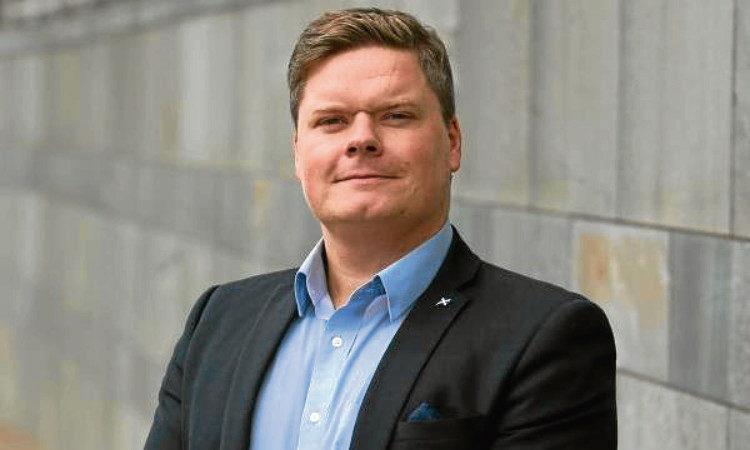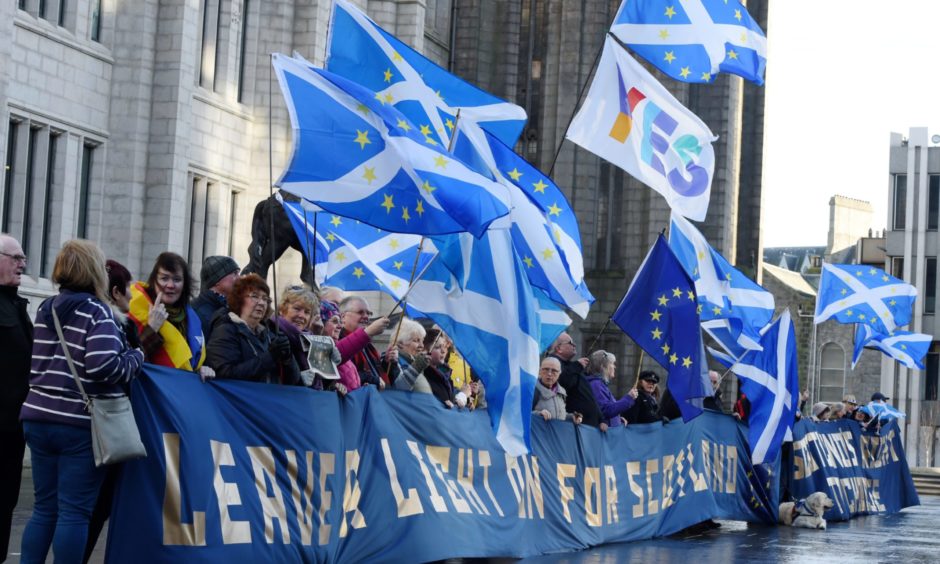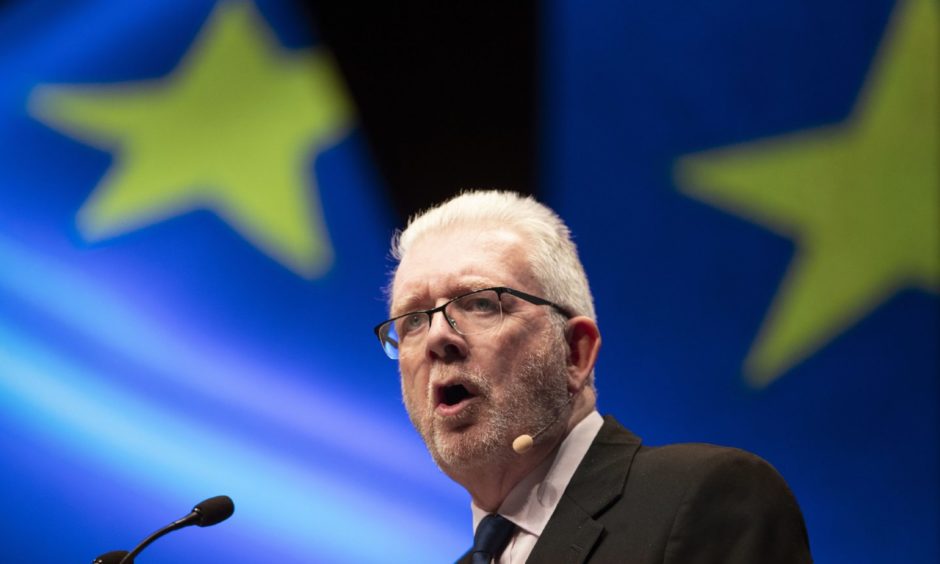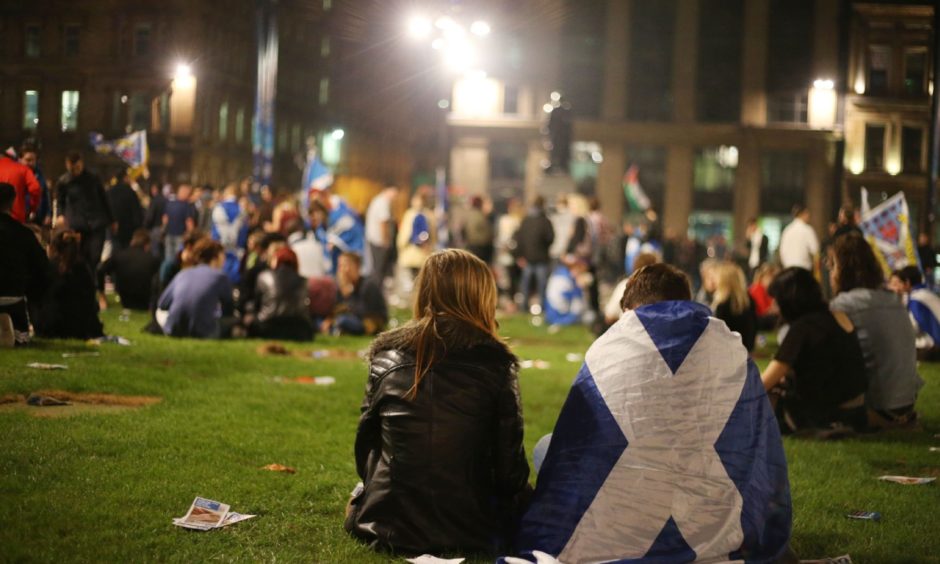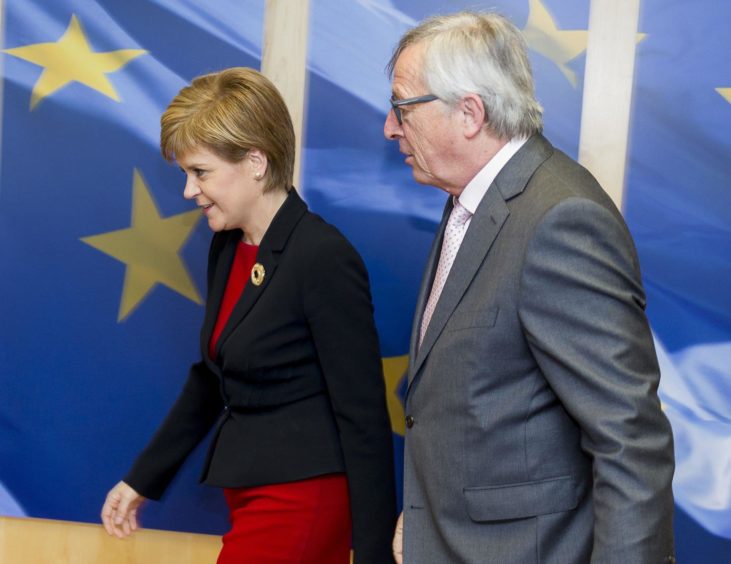A prominent SNP figure who has been a driving force behind calls for a “plan B” route to Scottish independence claims party bosses orchestrated a “co-ordinated attack” to stifle the debate.
Chris McEleny, the former leader of the SNP group on Inverclyde Council and one-time candidate for depute leadership of the party, has spent years calling for an alternative route if Westminster continues to reject calls for a new vote on separation.
The SNP announced this week an 11-point “roadmap to a referendum” that includes plans to hold a “legal” ballot, even if the UK Government refuses to acknowledge an SNP or pro-independence majority at May’s Scottish Parliament election.
The roadmap states the Scottish Government would first ask for a Section 30 order – the mechanism that transferred powers to Holyrood in 2014 – and then push forward with a new vote if this is refused and dare Westminster to try to block it in court.
Mr McEleny, who is highly critical of the plan, said the SNP leadership was forced to adopt some form of plan B after pressure from grassroots members and even attempted to have the debate “booed off stage” because it did not fit with original plans.
He has called for the UK Government to be given a March 31 deadline to agree to a new vote or have May’s Holyrood election be contested as a de facto referendum, where any pro-independence majority would be seen as a mandate to begin talks to leave the UK.
Bitterly disappointed
Mr McEleny claims party bosses were behind frosty scenes at the SNP conference in 2019 when he received a negative reception from some delegates while outlining why the party should consider bypassing a formal referendum.
He said: “When I started saying we needed to start considering a plan B, I was booed at party conference by, let’s be honest, a co-ordinated group of staffers and career-wannabe members that were placed in front of the podium to boo.
“I was bitterly disappointed because the first minister was on that stage, the deputy first minister was on the stage, as well as the leader and deputy leader of the Westminster group, who is the party chair, and they just sat and looked the other way.”
Plans for a debate at last year’s conference were “blocked” at a meeting of the SNP’s conferences committee, with delegates instead invited to to take part in an “open mic” session for people to share their views on independence.
Mr McEleny said those actions only garnered further support for a plan B option, to the point where it is now the “mainstream view within the party and the mainstream view within the independence movement”.
But he said too many people within the party are “a bit too comfortable” and accused the leadership of being “fixated on achieving a referendum as if that’s a success, rather than just the means to the end”.
“I think the grassroots are getting increasingly louder and increasingly clearer that they’re unwilling to go another four years being denied a choice on their future when this May presents us the opportunity to express that choice in the election,” he said.
Mike Russell, Scotland’s constitution secretary and SNP president, told the BBC he does not believe the UK Government would take the Scottish Government to court to block a referendum because it would be “such a bad look”.
“I think sense prevails, but it is quite fair that we say we intend to deliver that, so we’ll carry on with our referendum and if the UK Government wish to challenge that in court, they will have to challenge it and we will defend it,” he said.
A key weakness
There is no set timetable for the holding of a referendum laid out in the roadmap, but it does say it must occur after the coronavirus pandemic has ended. Mr Russell would not be drawn on what would happen if the UK Supreme Court rejects the referendum.
Mr McEleny highlighted this as one of the key weaknesses in the plan and said it could allow the issue to be dragged out well into 2022 or 2023.
He also pointed to the danger of attempting to hold a formal referendum without the agreement of the UK Government, which he believes could lead to parties boycotting the vote or council officials being pressured not to take part.
Mr McEleny said opposition parties would not be able to boycott a normal election and argued international pressure would make it “inevitable” that the UK Government “buckles” to a referendum or accepting the result in May.
“That, I think, would move the argument on politically because it puts pressure on the UK Government, that they’re effectively holding a nation hostage,” Mr McEleny said.
“No one is saying that you would just put a saltire up above the Scottish Parliament and say, ‘right, that’s us, we’re independent’.
“But what you would be saying after that election result is that now there is a clear mandate that the people of Scotland have voted for independence, and it is illegitimate and anti-democratic to deny that.”
However, experts such as Marc Weller, professor of international law and international constitutional studies at Cambridge University, have warned an independent Scotland may not gain EU entry without the UK Government’s consent.
Prof Weller told The Scotsman it “will not be possible” for the UK Government “to deny a referendum indefinitely” because Scotland’s right to leave the UK was “established informally in UK constitutional practice” after the 2014 referendum.
But he cited Cyprus, Greece, Romania, Slovakia and Spain – each of which face their own territorial challenges – and their blocking of Kosovo’s long-running bid to join the EU as a sign of the potential barriers that could face an independent Scotland.
An SNP spokesperson said Mr McEleny’s proposal “got a couple of dozen votes in a conference packed with thousands of delegates”.
